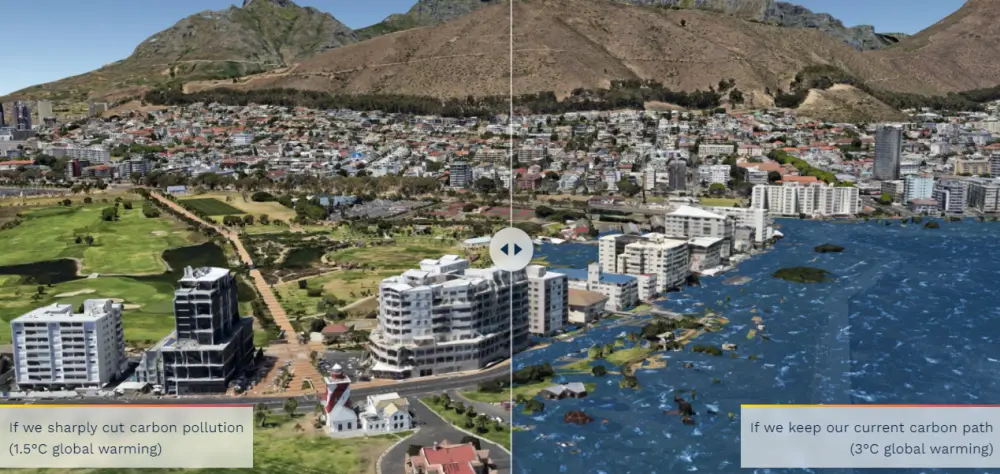Underwater Tomorrow: Study Shows Grim Picture of Drowned Cities in a Dystopian World
Scientists project a grim future scenario where major cities in coastal regions will be swallowed by seawater if humankind fails to limit the global temperature rise below 1.5 degrees Celsius
The warming of the planet has resulted in historic droughts and deadly sea level rises. According to scientists, this rise in sea levels will go on for decades to come, even if global warming is halted right this second. However, a Climate Central study has projected a horrifying future scenario where major coastal cities will be drowned by the rising seas amid the unceasing global warming.
Climate Central, a nonprofit research group, has analyzed the current scenario and compared them with an expected picture of the flooded future. The study revealed that around 50 major coastal cities will need to make unforeseen adaptations to prevent the rising sea levels from evading their most populated areas.
The study was done in collaboration with researchers at Princeton University and the Potsdam Institute for Climate Impact Research in Germany. It produced striking visual contrasts between the world we see today and an underwater tomorrow in a scenario where global temperatures rise to 3 degrees Celsius above pre-industrial levels.

These images show current and projected future sea levels at Blue Train Park in Cape Town, South Africa | Image: Climate Central
Climate Central used global elevation and population data to analyze parts of the world that will be more susceptible to rising sea levels, which mainly consist of parts of the Asia-Pacific region. India, China, Vietnam and Indonesia are in the top five countries that are most vulnerable to long-term sea-level rise.
Reportedly, the planet is already around 1.2 degrees Celsius warmer than pre-industrial levels. Earlier studies and scientists’ warnings have said that temperatures should stay below 1.5 degrees Celsius, which is a critical threshold to avoid the devastating impacts of the climate crisis.
Even if humankind manages to halt the global temperatures from rising, they will still peak above the 1.5 degrees threshold before declining – an optimistic scenario that can be achieved by declining global carbon emissions today and reaching net-zero by 2050.
In the opposite scenario, where emissions continue to increase beyond 2050, the planet will easily reach 3 degrees in the 2060s and 2070s.
Via: CNN


